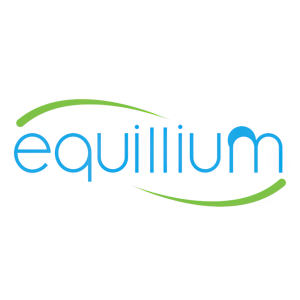Equillium Announces Oral Presentation at the Italian Society of Experimental Hematology
Translational data demonstrates itolizumab’s impact on effector T cell function in acute graft-versus-host disease
“The translational work presented specifically characterizes CD6 expression levels and demonstrates the suppressive effect of itolizumab on the activity of CD4 and CD8 T cells from transplant patients with aGVHD,” said
Itolizumab is a first-in-class anti-CD6 monoclonal antibody that selectively targets the CD6-ALCAM pathway, which plays a central role in modulating the activity and trafficking of the pathogenic T cells driving a number of immuno-inflammatory diseases.
Presentation ID: |
No.14 |
||
Category: |
Immunotherapy and transplantation |
||
Abstract Title: |
The Inhibition of the CD6-ALCAM Co-Stimulatory Pathway of T Lymphocytes Through the use of the Anti-CD6 Monoclonal Antibody Itolizumab for the treatment of Acute Graft-Versus-Host Disease After Hematopoietic Stem Cell Transplantation |
||
First Author: |
|
Key Highlights, Summary and Conclusions from Oral Presentation:
- CD6+ T cells reconstituted early after transplant
- Itolizumab inhibits T cell proliferation and activation in patients with aGVHD
- Itolizumab demonstrates pathway specificity by inhibiting T cell proliferation in the presence of ALCAM-Fc and anti-CD3 antibody, with no effect in the presence of anti-CD3 antibody alone
- Functional inhibition of the CD6-ALCAM pathway may be a novel therapeutic strategy for treating aGVHD, and translational data supports the recently initiated Phase 3 EQUATOR study of itolizumab in the first-line setting
The presentation is available on the Presentations page on Equillium’s website.
About Graft-Versus-Host Disease (GVHD)
GVHD is a multisystem disorder that is a common complication of allogeneic hematopoietic stem cell transplants (allo-HSCT) caused by the transplanted immune system recognizing and attacking the recipient’s body. Symptoms of GVHD include rash, itching, skin discoloration, nausea, vomiting, diarrhea, and jaundice, as well as eye dryness and irritation.
GVHD is the leading cause of non-relapse mortality in cancer patients receiving allo-HSCT, and its risk limits the number and type of patients receiving HSCT. GVHD results in high morbidity and mortality, with five-year survival of approximately
About Itolizumab
Itolizumab is a clinical-stage, first-in-class anti-CD6 monoclonal antibody that selectively targets the CD6-ALCAM signaling pathway to selectively downregulate pathogenic effector T cells while preserving regulatory T cells critical for maintaining a balanced immune response. This pathway plays a central role in modulating the activity and trafficking of T cells that drive a number of immuno-inflammatory diseases.
About
For more information, visit www.equilliumbio.com.
Forward Looking Statements
Statements contained in this press release regarding matters that are not historical facts are "forward-looking statements" within the meaning of the Private Securities Litigation Reform Act of 1995. Forward-looking statements may be identified by the use of words such as "anticipate", "believe", “could”, “continue”, "expect", "estimate", “may”, "plan", "outlook", “future” and "project" and other similar expressions that predict or indicate future events or trends or that are not statements of historical matters. Because such statements are subject to risks and uncertainties, many of which are outside of the Company’s control, actual results may differ materially from those expressed or implied by such forward-looking statements. Such statements include, but are not limited to statements regarding the potential benefit of treating patients with aGVHD or lupus/lupus nephritis with itolizumab, Equillium’s plans and expected timing for developing itolizumab including the expected timing of initiating, completing and announcing further results from the EQUATE, EQUIP, EQUALISE and EQUATOR studies, Equillium’s plans and expected timing for developing EQ101 and EQ102 including the expected timing of initiating, completing and announcing further results from Phase 2 and Phase 1 studies, respectively, the potential for any of Equillium’s ongoing or planned clinical studies to show safety or efficacy, Equillium’s anticipated timing of regulatory review and feedback, and Equillium’s plans and expected timing for developing its product candidates and potential benefits of its product candidates. Risks that contribute to the uncertain nature of the forward-looking statements include: uncertainties related to the abilities of the leadership team to perform as expected; Equillium’s ability to execute its plans and strategies; risks related to performing clinical studies; the risk that interim results of a clinical study do not necessarily predict final results and that one or more of the clinical outcomes may materially change as patient enrollment continues, following more comprehensive reviews of the data, and as more patient data become available; potential delays in the commencement, enrollment and completion of clinical studies and the reporting of data therefrom; the risk that studies will not be completed as planned; Equillium’s plans and product development, including the initiation and completion of clinical studies and the reporting of data therefrom; whether the results from clinical studies will validate and support the safety and efficacy of Equillium’s product candidates; changes in the competitive landscape; uncertainties related to Equillium’s capital requirements; and having to use cash in ways or on timing other than expected and the impact of market volatility on cash reserves. These and other risks and uncertainties are described more fully under the caption "Risk Factors" and elsewhere in
View source version on businesswire.com: https://www.businesswire.com/news/home/20220404005294/en/
Investor Contact
Vice President, Investor Relations & Corporate Communications
619-302-4431
ir@equilliumbio.com
Media Contacts
Aljanae Reynolds
areynolds@wheelhouselsa.com
Source:







